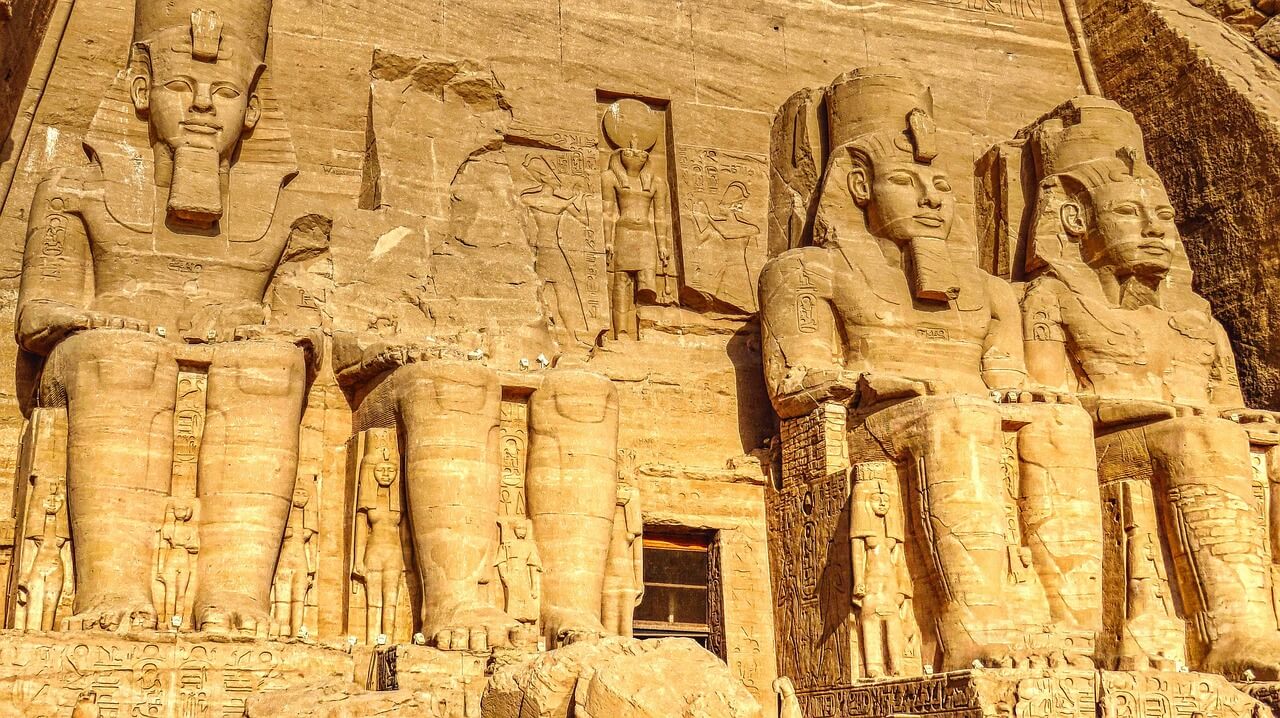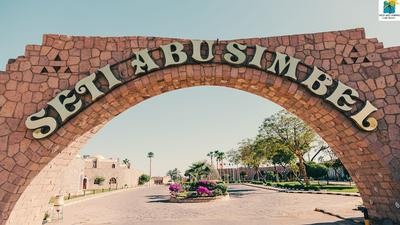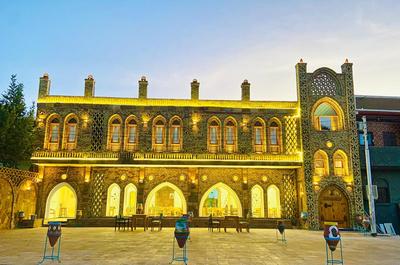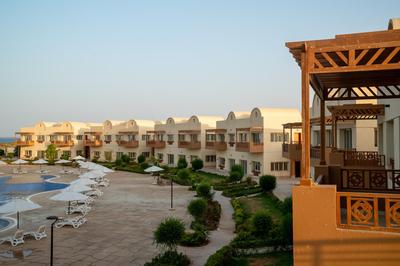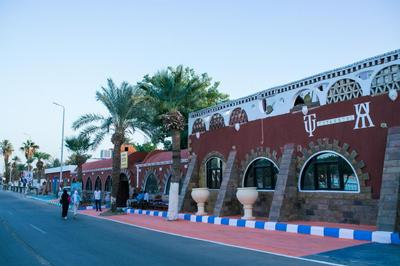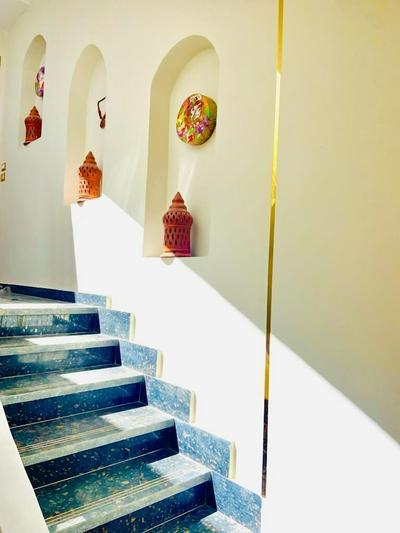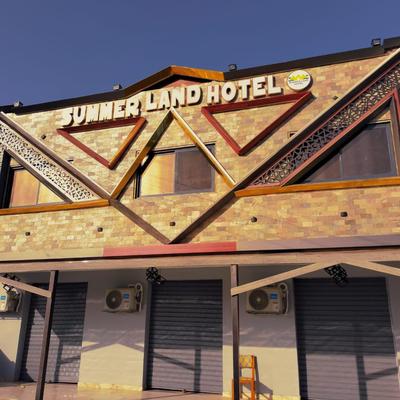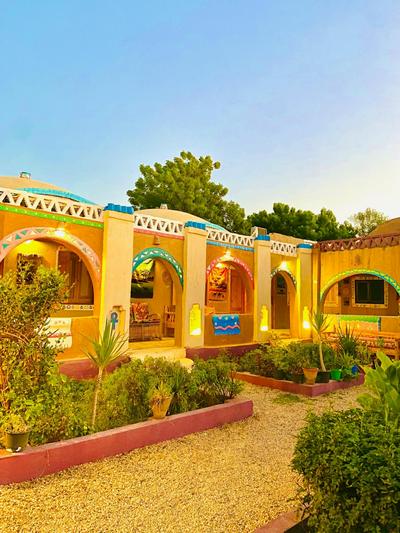When to visit Abu Simbel?
Abu Simbel, located in the southern part of Egypt, boasts a hot desert climate, which heavily influences its tourist seasons. The best time to visit is generally between October and April, when the weather is milder and much more pleasant for exploration.
During the winter months (December to February), temperatures can drop to around 10°C (50°F) at night but are typically warm during the day, averaging around 20-25°C (68-77°F). This season is ideal for visitors looking to enjoy the outdoors without the scorching heat of summer.
Spring, from March to May, is another excellent time to explore Abu Simbel. Daytime temperatures start to rise, reaching 30°C (86°F) or higher, particularly in April. However, this season brings some beautiful desert blooms and clear skies, making it a picturesque time for photography.
Summers (June to September) in Abu Simbel can be uncomfortably hot. Day temperatures often exceed 40°C (104°F), especially in July and August. Travelers who don’t mind the heat can find fewer crowds during this time, but it’s essential to stay hydrated and plan activities for early morning or late afternoon.
Finally, autumn (September to November) offers a gradual cooling trend. Early September can still be quite hot, but by October, it becomes pleasant again, making it a suitable time for visiting historical sites like the iconic Abu Simbel temples. Overall, the best season for a visit significantly depends on personal preference regarding weather tolerance and crowd levels.
How to get to Abu Simbel?
Reaching Abu Simbel can be an adventure in itself, with a variety of transport options available. The most convenient way to arrive is by air. Abu Simbel has a small airport, the Abu Simbel Airport (ASW), which connects to Cairo and other major cities. Flights from Cairo take about 1 hour and are a great way to save time for sightseeing.
For those who prefer traveling by road, buses frequently operate from Aswan, located approximately 280 km (174 miles) away. The journey takes about 3 to 4 hours and provides scenic views along the route. Private car rentals are also available, giving travelers flexibility to explore at their own pace.
Train travel is another option, although the nearest train station is in Aswan. From there, visitors can catch a taxi or bus to reach Abu Simbel. Overall, because of the limited direct connections, flying to Abu Simbel is the most efficient option for many tourists, especially for those with tight itineraries.
Tourist activities in Abu Simbel
Abu Simbel may be a small town, but it’s packed with unforgettable activities and attractions that center around its majestic temples. Most famous are the two rock temples built by Pharaoh Ramesses II, showcasing incredible architecture and historical significance. These temples are best explored in the early morning or late afternoon to avoid the midday heat.
In addition to visiting the temples, take some time to enjoy the scenic beauty surrounding Lake Nasser, where opportunities for boat rides are popular. Visitors can also take guided tours to learn about Nubian culture and history, gaining deeper insight into this fascinating region.
If you’re interested in the rich history of the area, consider visiting the nearby Nubian Museum in Aswan, which provides a deeper understanding of the local heritage. For those who enjoy outdoor activities, hiking around the nearby hills can offer stunning views of the temples and the lake.
Nightlife in Abu Simbel is quiet, but many visitors choose to relax at their accommodations, enjoying the peaceful ambiance often punctuated by local music. Overall, Abu Simbel offers a blend of cultural and natural experiences that you won’t want to miss.
Events and festivals
Abu Simbel hosts some unique events and festivals throughout the year, drawing both locals and tourists alike. One of the most significant celebrations is the annual Abu Simbel Sun Festival, which occurs twice a year on February 22 and October 22. During these days, the sun illuminates the inner chambers of the Temple of Ramses II, a spectacular sight that celebrates the ancient engineering of this magnificent structure.
In addition to the Sun Festival, you can also experience the Nubian Cultural Festival, typically held in mid-November. This vibrant event showcases traditional music, dance, and arts, providing cultural insights into the lives of the Nubian people.
The town is also a great place to experience local holidays and religious celebrations, especially during Eid al-Fitr and Eid al-Adha, where various cultural activities, feasts, and gatherings take place.
Attending these festivals offers a fantastic opportunity to immerse yourself in the local culture and witness the rich traditions of Abu Simbel and the surrounding regions.
Family and kids activities
Abu Simbel is a wonderful place for families with children, offering activities that cater to various age groups. The star attraction is undoubtedly the majestic temples, where kids can marvel at the fantastic structures and learn about Egyptian history in a fun way. Guided tours that focus on the stories behind the temples can keep young minds engaged.
A trip to Lake Nasser can provide a lovely family outing, where boat rides can be thrilling for kids and adults alike. Swimming in the cooler waters or simply relaxing by the shore can also be enjoyable, especially in the hotter months.
Nearby, families can often find parks or open areas that are perfect for picnics and outdoor games. Local playgrounds may be small, but they usually offer a safe space for children to burn off energy after long excursions.
If you're looking for educational experiences, consider engaging with local Nubian guides who can share fascinating stories and crafts-making workshops designed for children. Overall, Abu Simbel has enough charm and activities to keep the family entertained!
What to see in Abu Simbel?
Abu Simbel is home to some of Egypt's most iconic landmarks, each telling a part of its fascinating history. Here are the must-see attractions:
- Great Temple of Ramses II: This awe-inspiring temple features four colossal statues of Ramses II and is dedicated to the sun god Ra. The temple is an architectural wonder.
- Small Temple of Hathor: Dedicated to Hathor, the goddess of love and joy, this smaller temple is just as remarkable, with beautiful carvings and sculptures.
- Lake Nasser: This man-made lake provides stunning views and opportunities for boat rides and fishing, ideal for enjoying the natural surroundings.
- Nubian Village: Visiting nearby Nubian villages offers insight into local culture and opportunities to engage with friendly residents.
- Abu Simbel Sun Festival: Time your visit for this annual event, when the sun illuminates the temples in a spectacular display.
These attractions make Abu Simbel a destination that beautifully blends history, architecture, and curation of a rich local culture.
Accommodation in Abu Simbel
Abu Simbel offers a range of accommodation options, suitable for various budgets. Whether you’re looking for luxury or something more affordable, you can find something to fit your needs.
For those wanting to indulge, consider the well-known Abu Simbel Lake Resort. Nestled by Lake Nasser, this resort provides stunning views and luxurious amenities, making it perfect for relaxation after a day of exploration.
Alternatively, you can find a variety of mid-range hotels and guesthouses that offer comfortable lodgings and essential amenities. Options like Seti Abu Simbel Hotel are popular choices, featuring clean rooms and convenient access to local attractions.
For budget travelers, hostels and simple motels are also available, giving access to essential services without breaking the bank.
Each accommodation type in Abu Simbel offers unique advantages, whether it's proximity to the temples, lake views, or a taste of local hospitality, making your stay memorable.
Important numbers and information
- Emergency Numbers: 112 (Police), 123 (Ambulance)
- Tourist Information Center: Abu Simbel Temple site, +20 101 234 5678
- Main Hospital: Abu Simbel Hospital, +20 101 246 6789
- Airport Contact: Abu Simbel Airport, +20 101 298 7890
- Public Transport Info: Local bus schedules are available at the Tourist Information Center.
- Taxi Apps: Consider using local taxi services; no popular apps operating here yet.
- Currency: Egyptian Pound. Credit cards widely accepted but cash is recommended for small purchases.
Where to eat?
Dining in Abu Simbel can be a delightful experience with several eateries offering local and international cuisine. Traditional Egyptian dishes like koshari, falafel, and also grilled meats are widely available.
One popular spot is Hathor Restaurant, known for its delicious local dishes and casual atmosphere. Many hotels also have on-site dining options where you can enjoy a meal with a view of Lake Nasser.
For a unique experience, try sampling some street food, such as kebabs from local vendors; they're tasty and often very affordable.
Average meal prices in Abu Simbel can range from 50 to 200 EGP, depending on where you eat, giving something for every budget. Dining in Abu Simbel allows you to immerse yourself in the local flavors and culinary traditions.
Nightlife – where to go out?
Nightlife in Abu Simbel is fairly low-key compared to larger Egyptian cities, offering a serene atmosphere where you can enjoy the peaceful desert evenings. Most nightlife revolves around hotel lounges and drink offerings, where guests can unwind after a day of sightseeing.
At the Abu Simbel Lake Resort, you can typically find a nice bar with local and international beverages, perfect for watching sunsets over Lake Nasser. Seti Abu Simbel Hotel’s terrace is also a recommended spot to relax and enjoy the views.
If you’re looking for more vibrant nightlife experiences, consider heading out to local cafes and restaurants where you might hear traditional music and local performances, especially during festivals.
While Abu Simbel may not have the nightlife options of bustling cities, the tranquil atmosphere allows for relaxing evenings with great food and stunning views. It’s a place to unwind and soak in the beauty of the surroundings.
Transport and taxis
Transport in Abu Simbel is relatively straightforward, although options are limited compared to larger cities. For local travel, taxis and private car hires are common. Many taxis don’t have meters, so it’s advised to negotiate fares beforehand.
Buses also operate, especially for trips to and from Aswan, but schedules can be irregular. Be sure to check local timetables ahead of time. If you’re planning on touring the temples, many hotels offer organized excursions that include transport.
As for ticket prices, local bus fares can be very affordable, usually around 10-15 EGP for a journey to Aswan. Consider speaking with your hotel or guides for the best local options for getting around.
- Taxis: Easily found, negotiate fares before starting.
- Buses: Run mainly to Aswan, fares approximately 10-15 EGP.
- Car Rentals: Available for those wanting to explore independently.
Parking and public garages
Parking in Abu Simbel is generally straightforward, especially around the popular attractions. There are designated parking areas near the temples, making it convenient for visitors who drive.
Public garages are limited, but most hotels provide parking facilities for their guests. It’s advisable to ask about parking arrangements upon arrival to ensure a hassle-free experience.
As for parking fees, they are typically nominal, but it's always good to have some change handy. When parking, be sure to secure your vehicle, as you would in any travel destination.
For drivers, be aware of the heat and plan to park in shaded areas when possible, especially during the hotter months, which can protect your vehicle’s interior from extreme temperatures.
Surroundings of Abu Simbel
The surroundings of Abu Simbel are rich with natural beauty and cultural heritage. One popular day trip from Abu Simbel is to the Temple of Kom Ombo, located about 220 km (137 miles) away. This unique double temple dedicated to both Sobek and Horus is worth a visit.
If you have extra time, consider a trip to Aswan (approximately 280 km/174 miles), where you can explore the stunning Philae Temple and the impressive Nile Dam. The city offers thriving markets and cultural sites that give insight into Egyptian life.
For nature lovers, sailing on Lake Nasser or taking a cruise can unveil the stunning landscapes of this artificial lake, often revealing unique wildlife and breathtaking views of the surrounding desert.
Other notable stops include the Nubian villages nearby, where you can experience local culture and hospitality. Whether history, culture, or nature appeals to you, the areas surrounding Abu Simbel provide rich experiences and beautiful scenery.
